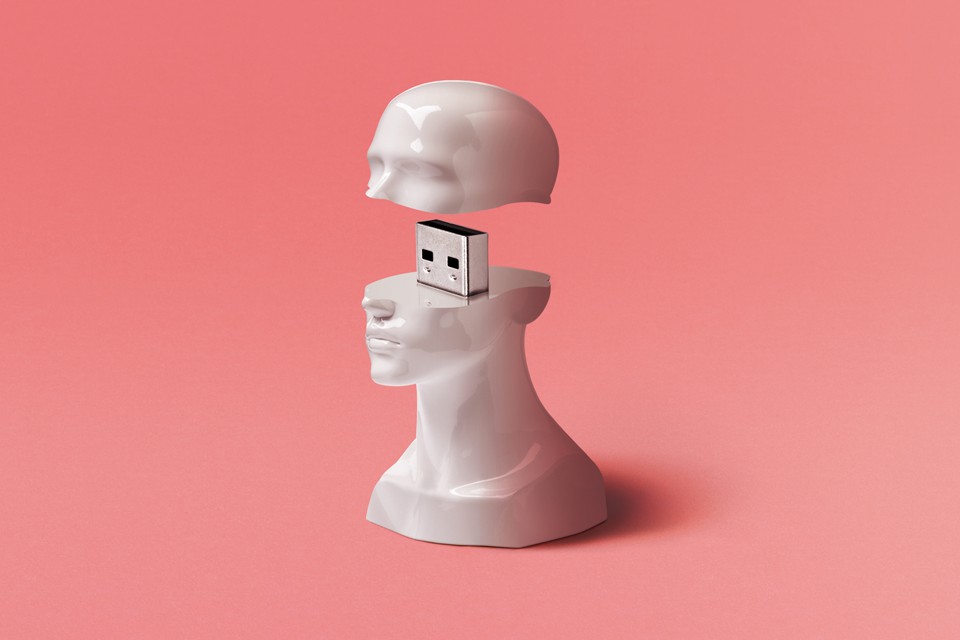 Spivack, the futurist, pictures people partnering with lifelong virtual companions. You’ll give an infant an intelligent toy that learns about her and tutors her and grows along with her. “It starts out as a little cute stuffed animal,” he says, “but it evolves into something that lives in the cloud and they access on their phone. And then by 2050 or whatever, maybe it’s a brain implant.” Among the many questions raised by such a scenario, Spivack asks: “Who owns our agents? Are they a property of Google?” Could our oldest friends be revoked or reprogrammed at will? And without our trusted assistants, will we be helpless?
Spivack, the futurist, pictures people partnering with lifelong virtual companions. You’ll give an infant an intelligent toy that learns about her and tutors her and grows along with her. “It starts out as a little cute stuffed animal,” he says, “but it evolves into something that lives in the cloud and they access on their phone. And then by 2050 or whatever, maybe it’s a brain implant.” Among the many questions raised by such a scenario, Spivack asks: “Who owns our agents? Are they a property of Google?” Could our oldest friends be revoked or reprogrammed at will? And without our trusted assistants, will we be helpless?
El Kaliouby, of Affectiva, sees a lot of questions around autonomy: What can an assistant do on our behalf? Should it be able to make purchases for us? What if we ask it to do something illegal—could it override our commands? She also worries about privacy. If an AI agent determines that a teenager is depressed, can it inform his parents? Spivack says we’ll need to decide whether agents have something like doctor-patient or attorney-client privilege. Can they report us to law enforcement? Can they be subpoenaed? And what if there’s a security breach? Some people worry that advanced AI will take over the world, but Kambhampati, of the Association for the Advancement of Artificial Intelligence, thinks malicious hacking is the far greater risk.
Given the intimacy that we may develop with our ever-present assistants, if the wrong person were able to break in, what was once our greatest auxiliary could become our greatest liability.
Source: The Atlantic
